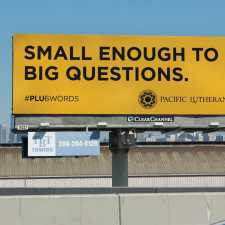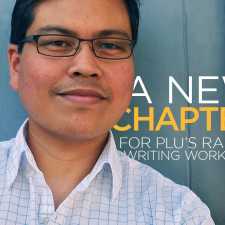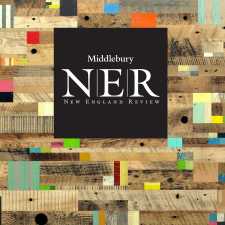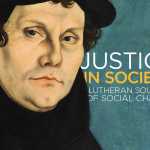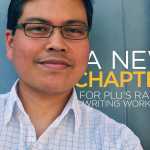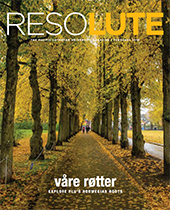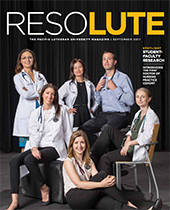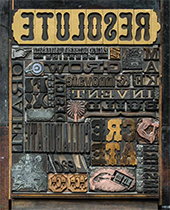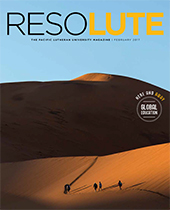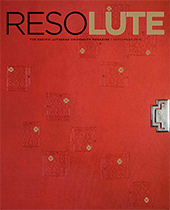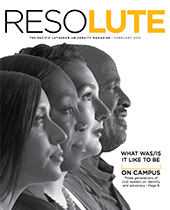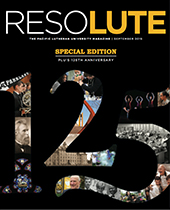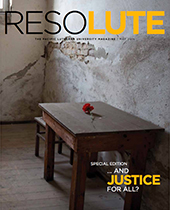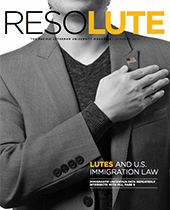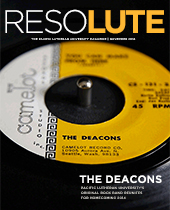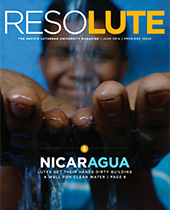“We work hard in the vineyards,” said the migrant worker, standing next to a lush, irrigated field in Eastern Washington. “But we live in terrible conditions and earn barely enough to get by. ‘Liberty and justice for all,’ you say. Really?”
The angry mother and the worn-out field worker give voice to the ancient plea: “Act with justice and righteousness, says the Lord, and deliver from the hand of the oppressor anyone who has been robbed. And do no wrong or violence to the alien, the orphan, and the widow, or shed innocent blood in this place” (Jeremiah 22:3).
About The Lutheran Studies Conference
- When: 9:30 a.m.-8:30 p.m. Thursday, Sept. 25.
- Where: Anderson University Center, on the PLU campus.
- Registration: Online registration is open now. (Check there, too, for the updated conference schedule and speaker biographies.) Current PLU faculty, staff and students are asked to register (free of charge); for all others, registration is $30. (The optional conference banquet is $30 per person.) Registration will continue at 8:30 a.m. Sept. 25 in the Anderson University Center.
- Register Now
While PLU 2020, the university’s long-range planning report, underscored that ancient commitment to act with justice and resist structural evil, the true meaning of “justice” remains an open, and disputed, question. While American children grow up repeating the words “with liberty and justice for all” in the Pledge of Allegiance, our nation’s history offers another story in which women, immigrants, people of color, refugees, sexual minorities and the land itself have been deprived freedom and justice.
Lutheran Studies Conference Scheduled Speakers
- PLU senior students Andrew Allen, Hannah Anderson, Andrew Larsen and Christian Wold will lead a panel on the vocation of promoting justice.
- Antonios Finitsis, chair of PLU’s Religion Department and an expert in the Hebrew Scriptures, will discuss the origins and development of Jewish and Christian commitments to social justice and their continuing power today.
- A workshop by PLU Sakai manager Sean Horner will focus on the groundswell of support in universities and churches committed to reversing climate change.
- Cynthia Moe-Lobeda, an ethicist of international fame from Seattle University, will ask how Lutheran sources invite people to resist forms of structural evil.
- In a workshop on food justice, PLU Religion Professor Samuel Torvend will explore the increasing incidence of food insecurity in Washington state and the ways in which humanist and religious groups intervene to secure food for all.
- Aana Vigen of Loyola University Chicago, a leading scholar of Lutheran commitments to social justice, will invite participants to consider the relationship between environmental and public health as she addresses sources in Lutheran higher education that foster a spirituality of justice.
- Paul Westermeyer, a distinguished Lutheran musician and historian from St. Olaf College and Luther Seminary, brings his scholarship on the music of justice that forms ethical commitments.
Martin Luther, the progenitor of Lutheran higher education, argued that God’s justice is a life-giving justice for all people regardless of gender, race or ethnicity, social or economic status—a justice that should suffuse human relationships and the education of future leaders in society. Indeed, he was among the first of his generation to protest business, banking and religious practices that favored the wealthy few and impoverished the many.
And yet Christian and Lutheran history also are marked by the refusal to heed the ancient call to act with justice, exchanging that more-difficult task for charitable endeavors or stoic silence in the face of oppression.
At the PLU conference, participants will engage with panelists, speakers and workshop leaders who will open up what it means to “act with justice” and explore the religious, philosophical and legal dimensions of promoting social change that benefits the many rather than the few.
As Americans—and as participants in Lutheran higher education—we are the inheritors of stories mixed with remarkable achievement and terrible loss. Which story will animate our lives together?

